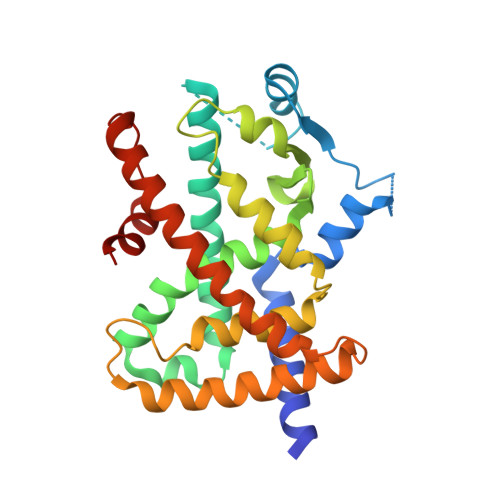Structural Basis for the Activation of Ppargamma by Oxidized Fatty Acids.
Itoh, T., Fairall, L., Amin, K., Inaba, Y., Szanto, A., Balint, B.L., Nagy, L., Yamamoto, K., Schwabe, J.W.R.(2008) Nat Struct Mol Biol 15: 924
- PubMed: 19172745
- DOI: https://doi.org/10.1038/nsmb.1474
- Primary Citation of Related Structures:
2VSR, 2VST, 2VV0, 2VV1, 2VV2, 2VV3, 2VV4 - PubMed Abstract:
The nuclear receptor peroxisome proliferator-activated receptor-gamma (PPARgamma) has important roles in adipogenesis and immune response as well as roles in both lipid and carbohydrate metabolism. Although synthetic agonists for PPARgamma are widely used as insulin sensitizers, the identity of the natural ligand(s) for PPARgamma is still not clear. Suggested natural ligands include 15-deoxy-delta12,14-prostaglandin J2 and oxidized fatty acids such as 9-HODE and 13-HODE. Crystal structures of PPARgamma have revealed the mode of recognition for synthetic compounds. Here we report structures of PPARgamma bound to oxidized fatty acids that are likely to be natural ligands for this receptor. These structures reveal that the receptor can (i) simultaneously bind two fatty acids and (ii) couple covalently with conjugated oxo fatty acids. Thermal stability and gene expression analyses suggest that such covalent ligands are particularly effective activators of PPARgamma and thus may serve as potent and biologically relevant ligands.
Organizational Affiliation:
Henry Wellcome Laboratories of Structural Biology, Department of Biochemistry, University of Leicester, Lancaster Road, Leicester LE1 9HN, UK.















